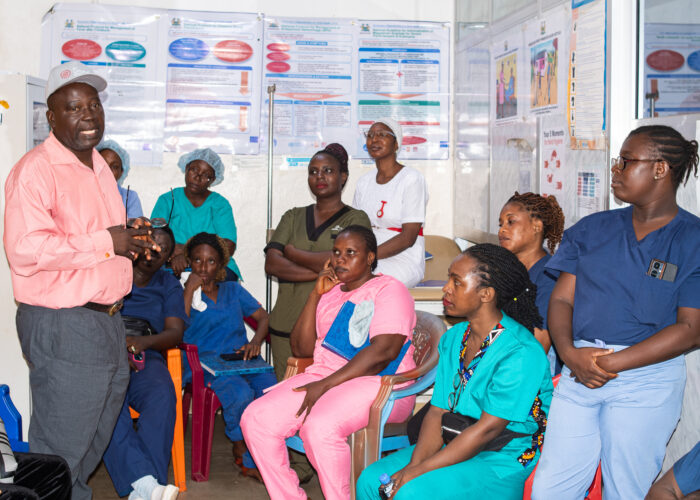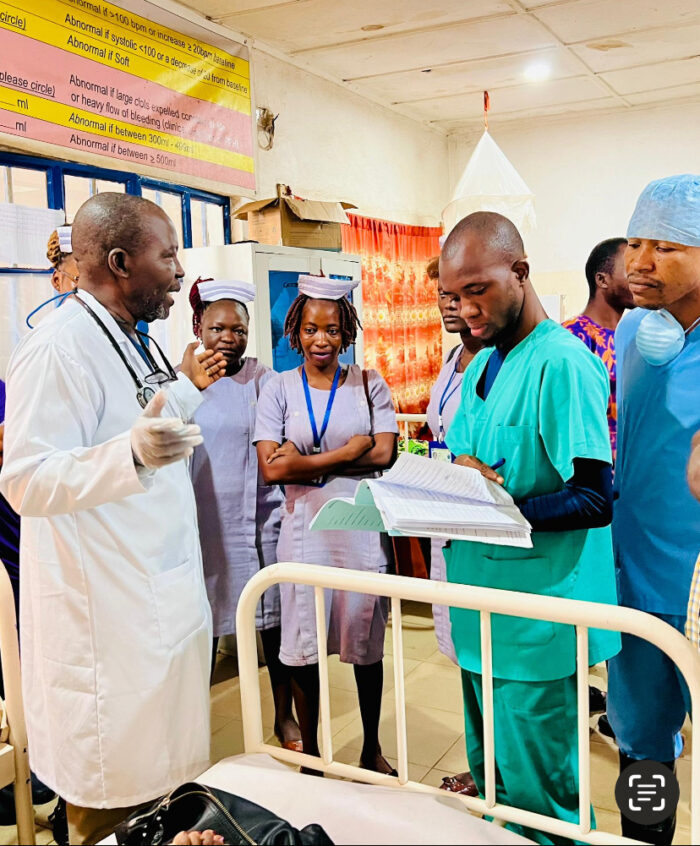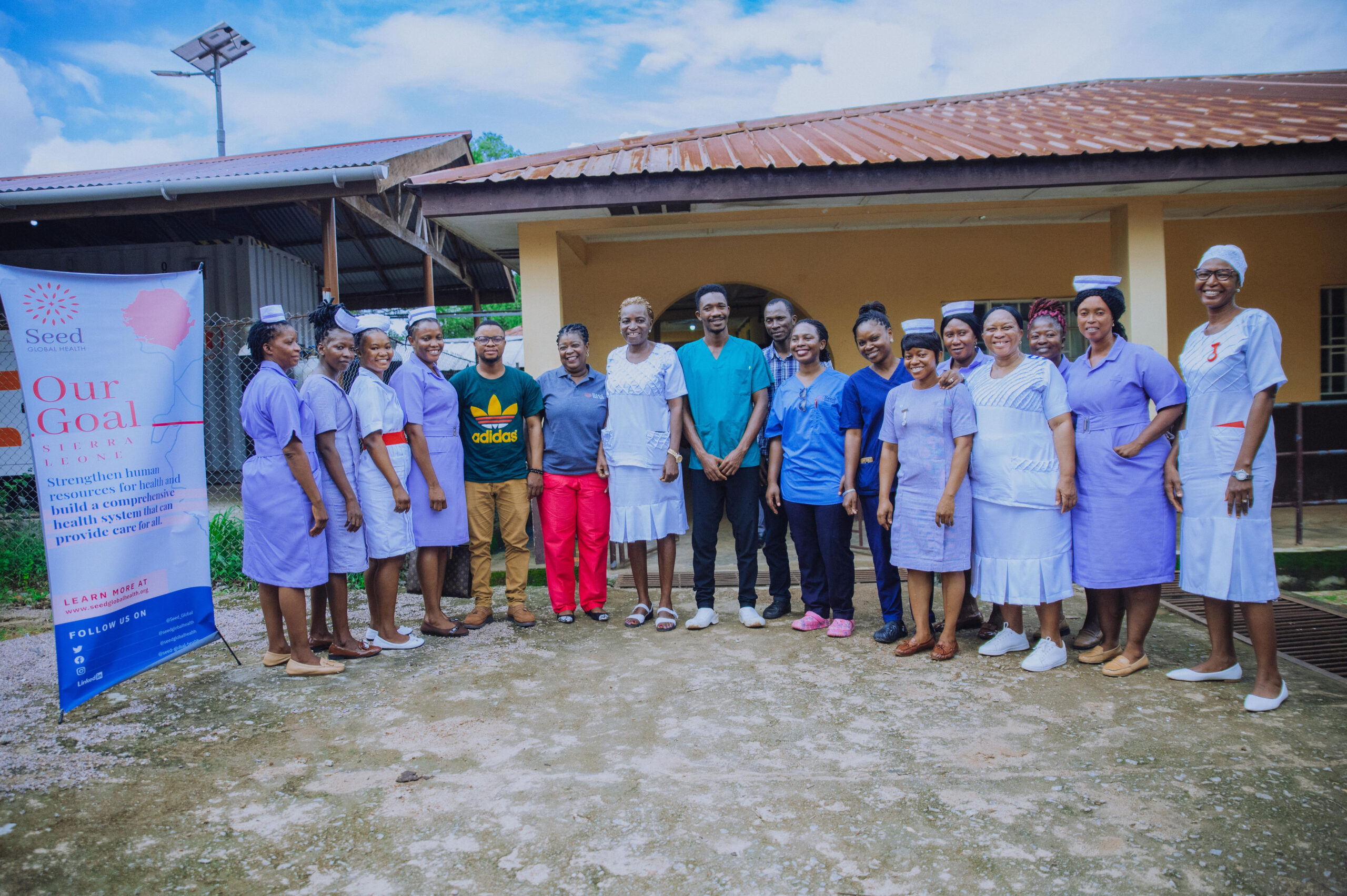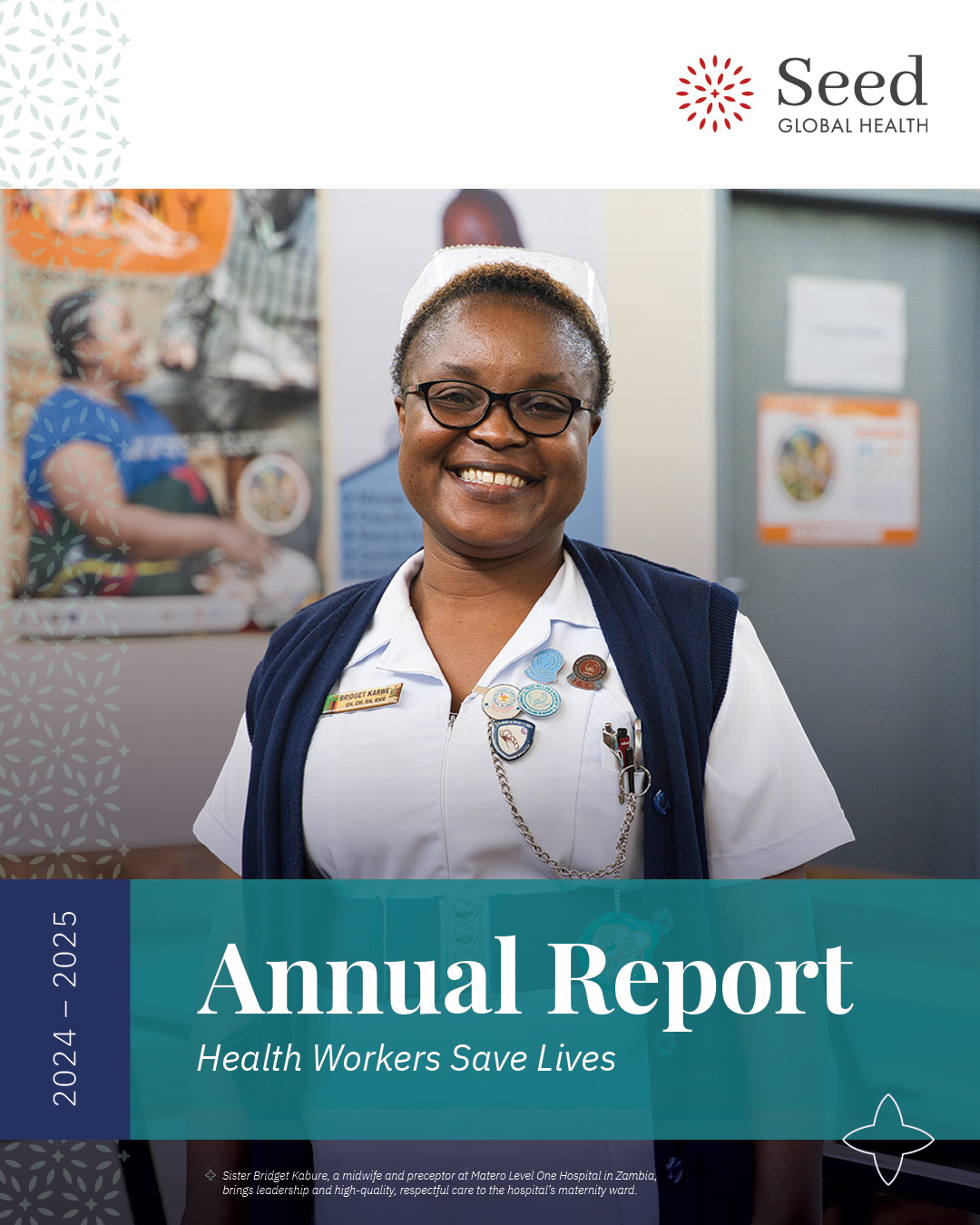
One OB/GYN, Countless Lives Transformed
With fewer than 10 OB/GYNs serving over 8.4 million people, Sierra Leone faces a critical shortage of specialist maternal care. However, change is underway for residents of Makeni and nearby communities, as Makeni Government Hospital has welcomed an obstetrician-gynecologist to its team.
Dr. Bartholomew Odio, a seasoned OB/GYN with over 20 years of experience, joined the hospital through a partnership with Seed Global Health. Having worked across both public and private sectors in Nigeria, he brings a depth of clinical expertise to a health system that urgently needs it.
His journey to obstetrics and gynecology began in childhood. “I heard my mother and other women mention that she died due to excessive bleeding,” he recalls of a woman in his village who passed away while giving birth at a traditional birth attendant’s home. “It didn’t make any sense to me then, but it remained indelible in my mind, especially seeing the baby she left behind grow up.” That moment, later reinforced by experiences in medical school, shaped Dr. Odio’s decision to pursue obstetrics and gynecology.
At Makeni Government Hospital, Dr. Odio joins a maternity team of just 30 staff serving a population of over 600,000 and managing more than 350 deliveries each month. Despite limited resources and critical equipment shortages, this team has been the backbone of maternal and newborn care. Until now, they did so without an OB/GYN specialist for long periods of time.
The Ministry of Health specifically requested Seed’s support in placing an OB/GYN at Makeni after maternal deaths began to rise following the departure of the hospital’s previous specialist. With no OB/GYNs available to redeploy, due to the nationwide shortage, the government had been rotating general practitioners (GPs) through Makeni every few months as a stopgap. While this ensured that a physician was on site, the lack of specialized maternal care meant that complications often went unaddressed, contributing to poor outcomes.
Dr. Odio’s arrival is already shifting that dynamic. Not only is he enhancing the quality of maternal and newborn care onsite, but he is also mentoring the rotating GPs, transferring vital skills in managing obstetric emergencies. As these GPs move on to other facilities, they carry these lifesaving competencies with them, creating a ripple effect across the country’s health system.

Dr. Odio has quickly become an integral part of the unit and acknowledged both the busyness and commitment of the staff to providing the best care. Each day begins with a morning huddle where the team reviews the previous day’s cases and identifies areas for improvement. Among the changes Dr. Odio is supporting are ensuring all antenatal clients receive basic investigations to optimize care, improving infection prevention practices, including surgical site protocols, and training theatre staff in surgical safety checklists to reduce life-threatening errors.
On Tuesdays, he conducts grand rounds that serve dual purposes: improving patient care while enhancing staff capacity through training.
Dr. Odio’s presence also offers crucial clinical mentorship to midwifery students and staff – a step toward more robust training and sustainable healthcare delivery.
According to Mustapha Sonnie, Seed Global Health’s country director, the hospital requested a specialist to complement the work of the midwives. Despite earlier progress, recent investigations into a rise in maternal deaths pointed to surgical complications as a contributing factor. “As a long-time partner of Makeni, we were approached to help address this challenge,” Mustapha explains. “The recruitment of Dr. Odio was done in full collaboration with the Ministry of Health and the local OB/GYN training institution.”

This development supports Sierra Leone’s broader goal of reducing maternal mortality. Earlier this year, the Minister of Health reported a decline from 443 to 354 maternal deaths per 100,000 live births between 2020 and 2023 but noted the rate remains unacceptably high. He called for sustained investment in health, and the recruitment of specialists like Dr. Odio is a key step to improving outcomes.
Dr. Joseph Kamanda Sesay, senior specialist general surgeon and medical superintendent at Makeni Government Hospital, commended the new addition to the team. He remarked, “Some of the patients we previously referred can now be managed on site, thereby easing the burden on the patient.” The addition of an OB/GYN, he continued, will significantly enhance maternal healthcare in the region. Dr. Sesay further elaborated that patients who were once compelled to “return to their villages to suffer and pass away because of financial incapacity,” rather than travel to Freetown for advanced care, “will now have hope of getting such advanced medical attention at Makeni Government hospital.”
Frederica Coker, a midwife at the hospital, is elated. She says having a specialist OB/GYN will help reduce the number of referrals they make and also lower the chances of having to return patients to the operating theatre for corrections. “Dr. Odio joined our morning huddles and immediately began addressing issues, especially in how we manage severe pre-eclampsia and malaria cases,” she shared.
Makeni is also home to one of the four midwifery schools in Sierra Leone, with students doing their clinical practice at Makeni Government Hospital. In partnership with the Ministry of Health and Seed, the School of Midwifery Makeni has benefited from ongoing faculty and curriculum support to strengthen midwifery education and practice.
Mustapha Sonnie says the placement of an OB/GYN at Makeni government hospital is more than a temporary fix – it marks a step toward lasting change. “It’s an addition to Seed’s midwifery training efforts which are in alignment with the government’s national goal to improve emergency obstetric and newborn care by 2030, supporting the training of 1,100 midwives, 37% of the national target,“ he explained, adding that with continued investment in the health workforce, the country can change the story of maternal mortality, one skilled health worker at a time.

